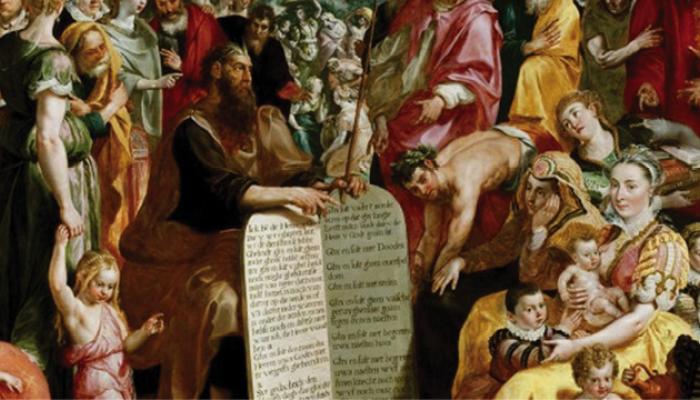
4.8 Qual è il rapporto tra fede e azioni?
Vivere da cristiani significa prendere decisioni consapevoli in merito alle nostre azioni (ciò che facciamo o non facciamo), basandoci sulla nostra relazione con Gesù. Come dice la Bibbia: “la fede senza le opere è morta.” (Gc 2, 26)Gc 2, 26: Infatti come il corpo senza lo spirito è morto, così anche la fede senza le opere è morta.. Se credi davvero a Gesù, allora vorrai fare quello che ti richiede: amare Dio e il tuo prossimo.
Un modo in cui possiamo dimostrare questo impegno è cercare di rispettare i Dieci Comandamenti , anche se non sempre ci riusciamo. A Dio interessa di più l’amore che dimostriamo con i nostri doni che quanto diamo (Mc 12, 41-44)Mc 12, 41-44: Seduto di fronte al tesoro, osservava come la folla vi gettava monete. Tanti ricchi ne gettavano molte. Ma, venuta una vedova povera, vi gettò due monetine, che fanno un soldo. Allora, chiamati a sé i suoi discepoli, disse loro: "In verità io vi dico: questa vedova, così povera, ha gettato nel tesoro più di tutti gli altri. Tutti infatti hanno gettato parte del loro superfluo. Lei invece, nella sua miseria, vi ha gettato tutto quello che aveva, tutto quanto aveva per vivere".. Come cristiani, siamo chiamati a lavorare per il benessere di tutti i nostri simili.
By what is love for the poor inspired?
Love for the poor is inspired by the Gospel of the Beatitudes and by the example of Jesus in his constant concern for the poor. Jesus said, “Whatever you have done to the least of my brethren, you have done to me” (Matthew 25:40). Love for the poor shows itself through the struggle against material poverty and also against the many forms of cultural, moral, and religious poverty. The spiritual and corporal works of mercy and the many charitable institutions formed throughout the centuries are a concrete witness to the preferential love for the poor which characterizes the disciples of Jesus. [CCCC 520]
What significance do the poor have for Christians?
Love for the poor must be in every age the distinguishing mark of Christians. The poor deserve not just a few alms; they have a claim to justice. For Christians there is a special obligation to share their goods. Our example in love for the poor is Christ.
“Blessed are the poor in spirit, for theirs is the kingdom of heaven” (Mt 5:3)—that is the first sentence in Jesus’ Sermon on the Mount. There is material, emotional, intellectual, and spiritual poverty. Christians must look after the needy of this earth with great consideration, love, and perseverance. After all, on no other point will they be evaluated by Christ so decisively as on their way of treating the poor: “As you did it to one of the least of these my brethren, you did it to me” (Mt 25:40). [Youcat 449]
When we hear, 'Your faith has saved you', we do not understand [God] to say absolutely that those who have believed in any way whatever will be saved, unless also works follow. [St. Clement of Alexandria, Stromata, Bk. 6, Chap. 14 (MG 9, 329)]





